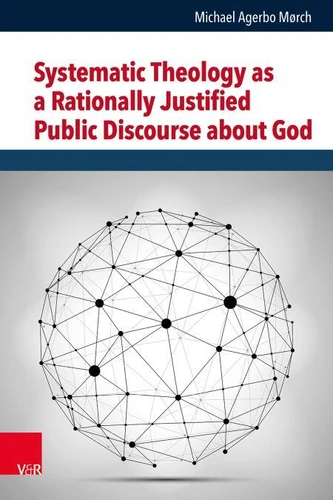Systematic Theology as a Rationally Justified Public Discourse about God
Par : , , , ,Formats :
Disponible dans votre compte client Decitre ou Furet du Nord dès validation de votre commande. Le format PDF est :
- Compatible avec une lecture sur My Vivlio (smartphone, tablette, ordinateur)
- Compatible avec une lecture sur liseuses Vivlio
- Pour les liseuses autres que Vivlio, vous devez utiliser le logiciel Adobe Digital Edition. Non compatible avec la lecture sur les liseuses Kindle, Remarkable et Sony
 , qui est-ce ?
, qui est-ce ?Notre partenaire de plateforme de lecture numérique où vous retrouverez l'ensemble de vos ebooks gratuitement
Pour en savoir plus sur nos ebooks, consultez notre aide en ligne ici
- Nombre de pages415
- FormatPDF
- ISBN978-3-647-56871-3
- EAN9783647568713
- Date de parution23/01/2023
- Protection num.pas de protection
- Taille6 Mo
- Infos supplémentairespdf
- ÉditeurVandenhoeck & Ruprecht
Résumé
For centuries it has been discussed whether systematic theology is a scientific discipline. But it is not obvious what is meant by either "systematic theology" or "scientific discipline". Michael Agerbo Mørch presents an understanding of systematic theology as a tripartite discipline and science as a rationally justified public discourse about a given topic. Systematic theology is shown to meet the most generally accepted criteria for scientific work, since its theories can be tested and even falsified in an intersubjective setting.
This can be done by the most proper tool we have for assessing and comparing scientific theories, which is coherence theory. Therefore, even though systematic theology is a distinct and normative discipline, it is not compromising for its theories because it can present its theses in a transparent way that can be checked and criticized by peers and compared to relevant alternatives. As such, the book shows that systematic theology is a scientifically strong discourse that meets accepted criteria to the same degree as other disciplines.
This can be done by the most proper tool we have for assessing and comparing scientific theories, which is coherence theory. Therefore, even though systematic theology is a distinct and normative discipline, it is not compromising for its theories because it can present its theses in a transparent way that can be checked and criticized by peers and compared to relevant alternatives. As such, the book shows that systematic theology is a scientifically strong discourse that meets accepted criteria to the same degree as other disciplines.
For centuries it has been discussed whether systematic theology is a scientific discipline. But it is not obvious what is meant by either "systematic theology" or "scientific discipline". Michael Agerbo Mørch presents an understanding of systematic theology as a tripartite discipline and science as a rationally justified public discourse about a given topic. Systematic theology is shown to meet the most generally accepted criteria for scientific work, since its theories can be tested and even falsified in an intersubjective setting.
This can be done by the most proper tool we have for assessing and comparing scientific theories, which is coherence theory. Therefore, even though systematic theology is a distinct and normative discipline, it is not compromising for its theories because it can present its theses in a transparent way that can be checked and criticized by peers and compared to relevant alternatives. As such, the book shows that systematic theology is a scientifically strong discourse that meets accepted criteria to the same degree as other disciplines.
This can be done by the most proper tool we have for assessing and comparing scientific theories, which is coherence theory. Therefore, even though systematic theology is a distinct and normative discipline, it is not compromising for its theories because it can present its theses in a transparent way that can be checked and criticized by peers and compared to relevant alternatives. As such, the book shows that systematic theology is a scientifically strong discourse that meets accepted criteria to the same degree as other disciplines.



